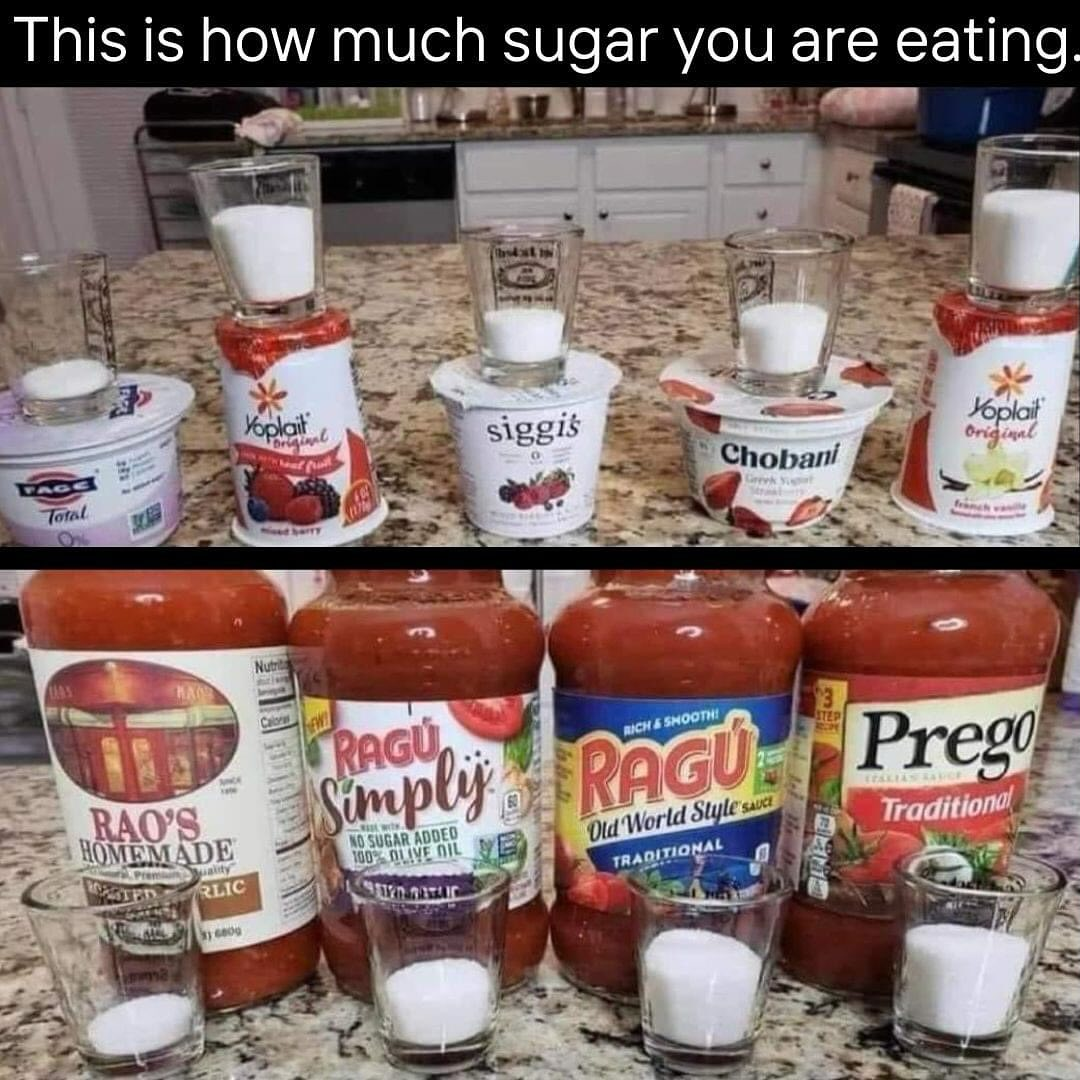this post was submitted on 05 Nov 2024
627 points (91.9% liked)
memes
10811 readers
2827 users here now
Community rules
1. Be civil
No trolling, bigotry or other insulting / annoying behaviour
2. No politics
This is non-politics community. For political memes please go to [email protected]
3. No recent reposts
Check for reposts when posting a meme, you can only repost after 1 month
4. No bots
No bots without the express approval of the mods or the admins
5. No Spam/Ads
No advertisements or spam. This is an instance rule and the only way to live.
Sister communities
- [email protected] : Star Trek memes, chat and shitposts
- [email protected] : Lemmy Shitposts, anything and everything goes.
- [email protected] : Linux themed memes
- [email protected] : for those who love comic stories.
founded 2 years ago
MODERATORS
you are viewing a single comment's thread
view the rest of the comments
view the rest of the comments

The intrinsic sugar in fresh berries with fiber are different than free sugars. Excess sugar is problematic for several reasons, chiefly chronic metabolic and cardiovascular diseases [1]. The more well known among them is insulin resistance. Insulin is an essential hormone for metabolism; without insulin you die (as in the case of type 1 diabetes). The pancreas pumps insulin to get the cells to absorb blood sugar, but if cells don't respond to the insulin properly ("resistant"), the pancreas keep pumping insulin and eventually cannot keep up resulting in high blood sugar that damages your body [2]. That's why one should avoid spiking blood sugar. Like many physiological systems sugar triggers a homeostatic response, so the body "expects" a level of sugar consumption once it gets used to it. This is also why artificial sweeteners are problematic: they don't reduce the dependency on sugar and moreover they disrupt the blood-sugar response whereby you don't get the same satiety from carbohydrates, etc. [3]. But it's not all doom and gloom, exercise increases your insulin sensitivity and reducing your sugar intake will almost always result in weight loss [2]. Reducing sugar intake also reduces your sugar dependency but can take a few months.